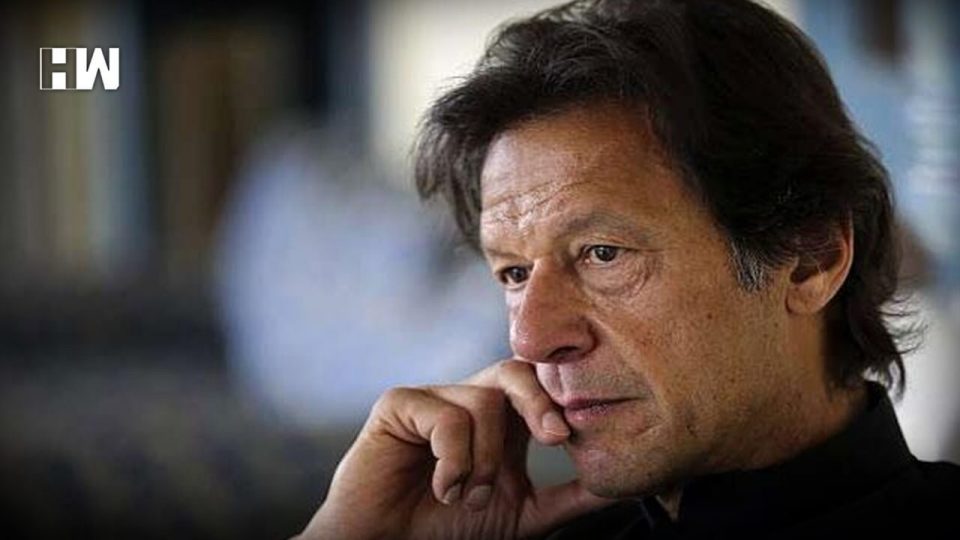Islamabad | Pakistan is facing a “challenging” economic environment and “decisive” policies and reforms are needed to stablise the economy, the IMF has warned as it reached a deal with the cash-strapped government of Prime Minister Imran Khan on a USD 6 billion bailout to stave off an financial crisis.
The funding, which still needs approval from the International Monetary Fund’s management, would be provided over three years. The agreement comes after months of negotiations that saw the sacking of Pakistan’s finance minister, the governor of the central bank as well as the top revenue officer.
Pakistan has faced an economic crisis with short supplies of foreign currency reserves and stagnating growth. In February, the central bank had only USD 8 billion left in foreign reserves.
“Pakistan is facing a challenging economic environment, with lackluster growth, elevated inflation, high indebtedness, and a weak external position,” IMF representative Ernesto Ramirez Rigo said in statement on Sunday after the agreement was reached with the Pakistan government.
“This reflects the legacy of uneven and procyclical economic policies in recent years aiming to boost growth, but at the expense of rising vulnerabilities and lingering structural and institutional weaknesses.
The authorities recognise the need to address these challenges, as well as to tackle the large informality in the economy, the low spending in human capital, and poverty,” he said.
“The Pakistani authorities and the IMF team have reached a staff level agreement on economic policies that could be supported by a 39-month Extended Fund Arrangement (EFF) for about USD 6 billion,” Rigo said.
The agreement is subject to IMF management approval and to approval by the Executive Board, subject to the timely implementation of prior actions and confirmation of international partners’ financial commitments.
He said the bailout programme aims to support the Pakistani authorities’ strategy for stronger and more balanced growth by reducing domestic and external imbalances, improving the business environment, strengthening institutions, increasing transparency, and protecting social spending.
Pakistan has so far received a total of USD 9.1 billion in financial aid packages from friendly countries like China, Saudi Arabia and the UAE during the current fiscal year.
Adviser to Pakistan Prime Minister on Finance Dr Abdul Hafeez Shaikh said the government could not have bridged the financing gap of USD 12 billion on its own that he said was created by a weak economy.
Asked to share the conditions that Pakistan has agreed to as part of the agreement, Shaikh said there were many things desired by the Fund that the government already saw as being in the country’s interest; they include aligning expenditure with resources, improve the functioning of loss-making state-owned enterprises, curtail the subsidies available to the wealthy classes and tax the rich segments.
“These structural changes are in our interest if we want to take our people in the direction of prosperity and improve their quality of life,” he was quoted as saying by Dawn newspaper.
He said because the government wants to send “a signal of financial discipline” and resolve fiscal challenges, the programme would entail raising prices in some areas in order to recover the costs.
“However the government is focused on not putting too much burden on the common man,” Shaikh said.
The IMF statement said, the forthcoming budget for FY2019/20 would be a first critical step in the authorities’ fiscal strategy.
The budget will aim for a primary deficit of 0.6 per cent of GDP supported by tax policy revenue mobilization measures to eliminate exemptions, curtail special treatments, and improve tax administration.
This will be accompanied by prudent spending growth aimed at preserving essential development spending, with the goal of protecting the most vulnerable segments of society.
The Imran Khan government on May 4 appointed Dr Reza Baqir a Pakistani economist working for the IMF as the governor of the State Bank of Pakistan after Tariq Bajwa resigned from the post of governor of Pakistan’s central bank.
The government also appointed Ahmed Mujtaba Memon to the key post of Federal Board of Revenue chairman, which also fell vacant after the removal of Jahanzeb Khan, the chairman of the tax collection body.
The key appointments come weeks after Finance Minister Asad Umar was asked to step down amid bailout negotiations with the IMF, suggesting the government wants to overhaul its financial team amid weakening growth rates and soaring inflation.
Last month, Prime Minister Khan appointed Dr Abdul Hafeez Sheikh as Adviser on Finance in place of Umar, as inflation rose to its highest in six years.
As an independent media platform, we do not take advertisements from governments and corporate houses. It is you, our readers, who have supported us on our journey to do honest and unbiased journalism. Please contribute, so that we can continue to do the same in future.

